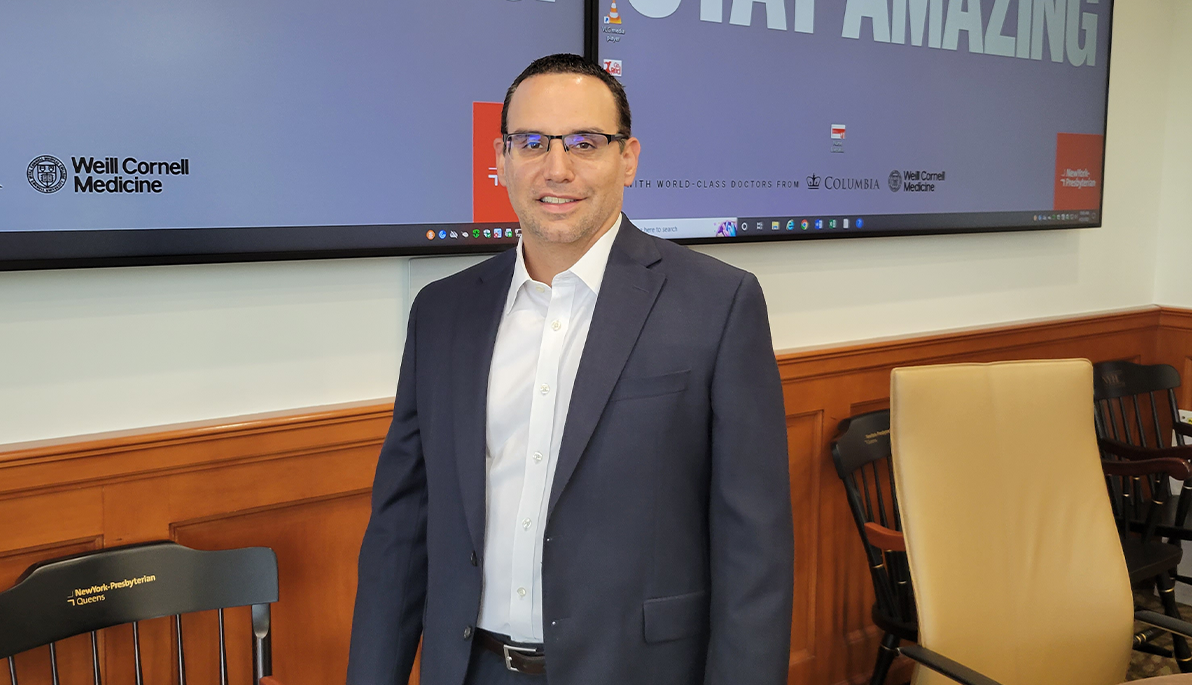
Alumni Profile: John Karaptis

Degree: B.S. ’03
Major: Physician Assistant Studies
Current Position: Director, surgical services and digestive disease, NewYork-Presbyterian Queens
Leading the Way for Better Healthcare
When asked which memory from his time at New York Tech stands out, John Karaptis (B.S. ’03) has a unique answer. “I still take a lot of pride in winning third place at the National Medical Jeopardy competition at the American Academy of Physician Associates Conference in Boston in 2002. I was on a three-person team from New York Tech, and I always remember it.” He spoke to New York Tech about his time as a student and how it impacted his career.
Tell us a bit about yourself. Did your background influence your choice to become a physician’s assistant?
I grew up in a middle-class town in Suffolk County, Long Island. My father was born on a small island in Greece (Ikaria) and came here as a teenager with nothing.
My father used to tell me stories of how his grandfather was the “island” doctor where he grew up. He had no official schooling or training. He learned and used different customary treatments that were passed down from generation to generation. I was very interested in these stories, and I believe they sparked my interest in medicine. I was also fascinated with biology and health education in primary school, which led me to the healthcare industry.
Why did you choose New York Tech?
The physician assistant (PA) program had a very good reputation and was known for producing high-performing PAs right out of school. The professors were excellent, confident, and extremely knowledgeable. They also offered a wide array of clinical locations in many hospitals and clinics and in different healthcare fields. The class size was also a little smaller and more intimate than in other programs I considered.
When I graduated, I realized how valuable my New York Tech education really was. During my clinical locations, I had more knowledge than any other PA or medical student on my rotations. I could answer all the questions our preceptors would ask, and it made me stand out (in a good way). I had a couple of offers lined up coming out of school, and I believe the preparation we had at our program led to this. The program also prepared us for how to act and be professional around patients and other healthcare workers. This isn’t always something you learn in school.
Can you tell us about your role as director of surgical services and digestive disease at NewYork-Presbyterian Queens?
Currently, I am working in healthcare leadership and administration. I now work on the back end of healthcare to improve the quality of care, patient safety, and operational efficiency through process improvement and change management. My clinical training, education, and experience have given me an advantage in working to improve healthcare as a whole.
Why is it important to you to serve on the School of Health Professions Advisory Board?
I believe it’s very important to stay connected and give back to institutions and environments that have helped you succeed, which New York Tech certainly has. I also think, in general, healthcare needs a lot of support with the current COVID-19 crisis and staffing situations, and what better way to help out than at the ground level, where healthcare professionals are trained?
This interview has been edited and condensed.









